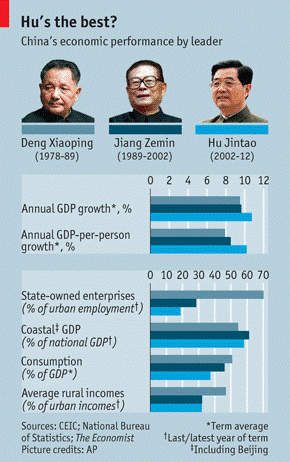

 字體:小 中 大
字體:小 中 大 |
|
|
|
| 2019/05/18 23:05:41瀏覽165|回應0|推薦0 | |
這篇是描述對中國第一夫人的正面看法。筆者曾從楊中美博士的書上得知,習夫人的親戚住在台灣。從三立新聞部得知是住在嘉義,即其妻舅李新凱先生。他是黃倩萍主播的粉絲,在十幾年前call-in週末節目時會打電話來哈拉。當年這批外省老兵的態度轉變至本土落地生根的想法,是2004年總統大選時,阿扁有險中求勝的原因。
China’s new first ladyThe voice behind the throneChina’s first lady is better known in her homeland than her husbandNov 17th 2012 | BEIJING | from the print edition
AS HE settled into his new role as China’s leader in the 1950s, Mao Zedong thought carefully about how his wife, an actress of some renown named Jiang Qing, would play her part in the new China. Traditional attitudes ranked stage performers just above prostitutes in China’s social hierarchy and so Mao set about destroying evidence of her past career. Prints of her films were burned, and a new image for Madame Mao was created. Taking charge of Mao’s party this week, Xi Jinping is also accompanied by a wife in show business. She is Peng Liyuan, a folk singer, who holds the rank of major-general in the musical troupe of China’s army. Modern attitudes are more showbiz-friendly and Ms Peng, who is about to turn 50, is anyway much too well known and far better respected to have her past erased. Indeed, for most of their 25-year marriage (Mr Xi’s second) she has been much more famous then her husband. (When Mr Xi joined the standing committee of the Politburo in 2007, the joke was “Who is Xi Jinping? He’s Peng Liyuan’s husband.”) They have a daughter, who attends Harvard under a pseudonym. In this section As Mr Xi has been groomed for the top job, however, Ms Peng’s public profile has dimmed somewhat. If recent history is any guide, she can be expected to remain in the shadows. Since Mao’s day, Chinese leaders havetried to keep their wives out of the public spotlight. But Ms Peng may still add some pizzazz to the role. She already works to promote awareness of AIDS and other diseases in China, and last year took up a similar role with the World Health Organisation. It is unclear, though, how much attention she will be allowed to seek. Mr Xi and China’s other leaders all appear to be graduates of the strait-laced technocratic school of Chinese politics. It does not seem likely that Ms Peng will be allowed to shine like Jackie Kennedy, Michelle Obama or even, heaven forbid, Raisa Gorbachev. from the print edition | China
The voice behind the throne Nov 19th 2012, 13:39
Well, Ms. Xi, our new first lady characteristic of the contemporary China’s mature female, is the first-class singer in military (owning the high rank) and Peking University’s lecturer of music theory. Ms. Xi, Peng Li-yuan, can express the cultivated aspect of China.
Although I belong to another faction of Li Ke-qiang, I know this couple and can talk about something on this blog. Ms. Xi is Mr. Xi’s second-marriage wife since 1986 after Xi had unhappy marriage ending in 1982 with Ke Ling-ling (basically, this relative story couldn’t be said too much). Mr. and Ms. Xi have a daughter, now studying in Harvard University. Ms. Xi has some relatives in Taiwan - some coincidence of Xi to be engaged in Taiwan’s affairs - her aunt, a local important supporter of Chen Shui-bian, lives in Chiayi. As a result, Xi has a marriage which reflects the tendency of liberty. Moreover, Ms. Xi is expected to do better than the predecessor, Jiang Ze-min’s Wang Yie-ping and Hu Jing-tao’s Liu Yong-qing, who is a fan of computer. Especially, Jiang and Jiang’s wife impressed many world’s leader at the contemporary period during their officially foreign visits.
From 1980 while Ms. Xi was at age of 18, she won the champion in Shandong TV’s program “National Folk Songs” as a pride of The Miao minority. As Dr. Yang Zong-mei’s books (a series of our new leaders’ biography), during 1980s, she owned the fame as her teacher Jin Tie-lin and senior-in-school Li Gu-yi. Due to Ms. Xis then job in military, where Xi began to work as an intern, Xi had a chance to be introduced in front of Ms. Xi by some military generals. Besides Dr. Yang’s, Ya-zhou Weekly in 2008 also reported their some well-known stories when Xi was the chief of Beijing Olympic concerned of preparation. Min-Jing Monthly did, too.
For me, they are kind of social relationship. Therefore, I put forward some policy smoothly in Beijing by the couple’s support. In other words, I don’t waste my time after Chen Shui-bian, who took my advice in tenure, steps down in 2008. And Xi and Li Ke-qiang takes over the power in Beijing. By the way, Li is married to Cheng Hong, a professor of English at the Capital University of Economics and Business in Beijing. Both Li and Cheng are award-winning scholarship, keeping a tea-table public image.
Basically, in China’s modern history (after Empress Dowager Cixi), “the first lady” is a big issue among politician, journalists and historians. Always with a thought of mimic of Cixi, these three kinds of figures also gave a beautiful image for a promotion of China’s international position, such as Dr. Sun Yat-sens Soong Qing-lin, Chiang Kai-shek’s Soong Mei-ling or Lien Chan’s Fang Yu elected as one of China’s Lady, Chen Shui-bian’s Wu Shu-chen. These four once owned well-known prestige as a metaphor of powerful regime. So does Xi’s. Of course, there isn’t absolute standard arranging the rank of first lady in the world and it’s an error. Instead, to show the style of both person and nation is the key to successful foreign mission, like Soong Mei-lin’s address in American Congress while second world war processed.
Well, some may ask Ma Ying-jeou’s wife, Zhou Mei-ching who graduated from Harvard University with Ma, for some peace-like reason. But, very sorry, let me omit them.
Recommended 17 Report Permalink
彭麗媛弟來台奔喪 習派中南海保鏢隨行 本文網址:https://www.aboluowang.com/2016/1124/840299.html 阿波羅網: 新聞/評論/生活/娛樂 家在海外 放眼世界 魂系中華 彭麗媛弟來台奔喪 習派中南海保鏢隨行(組圖/2視頻) 【阿波羅新聞網 2016-11-24 訊】 【阿波羅網編注:文中彭麗媛弟弟的名字“彭蕾”應為“彭磊”。】 中共中央總書記習近平夫人彭麗媛舅舅李新凱11日病逝,靈堂設于嘉義長庚醫院,今(23日)上午舉行告別式,中國來的家屬約10多人到場,除了彭、李兩家親戚之外,習近平辦公室也特別派出安全協調官員,早上6點多就先到告別式會場上。
彭蕾回避公開現身,但告別式現場一付落款為“胞妹李秀英率眾子女拜挽”花籃,據稱是彭麗媛家人以母親名義所贈 此外,彭麗媛弟弟彭蕾早上7點多就先來行禮,由於考量到稍晚將有多位臺灣政黨人士出席,故8點10分之前便先行離開,等到儀式結束後,再來跟其他家屬會合;除了彭蕾離開,其他自中國來的家屬都在現場。 習近平妻舅李新凱今(23日)上午舉行告別式,第一夫人彭麗媛的弟弟彭蕾(白衣跪地者),早上親至現場行禮,彭蕾左邊一起跪拜者,則為彭麗媛的表弟(另外一個舅舅的兒子)。
彭麗媛弟弟彭蕾(白衣者)在多名黑衣人護送下於8點10分先行離開
李新凱告別式上,多位臺灣政黨人士送上花藍弔唁,嘉義市長塗醒哲也到場致意。 特別一提的是,移民署、警方在此重兵佈置,家屬特別要求“不要讓媒體靠近、拍到彭蕾的臉”,為避人耳目,習近平辦公室派出的安全協調官員,也特別換上禮儀公司的衣服與識別證。
彭麗媛(中)弟弟彭蕾(右)早上7點多就先來行禮,家屬特別叮嚀“不要讓媒體靠近、拍到彭蕾的臉”。 稍晚臺灣政黨人士包括民進黨秘書長洪耀福、國民黨主席洪秀柱都會前來致意。
國民黨主席洪秀柱擔任“點主官”。
總統蔡英文以民進黨主席身分送花籃致意,稍晚秘書長洪耀福將抵達告別式現場。 李新凱是60年的資深國民黨員,本月10日病逝於嘉義市。由於中國國家領導人習近平的夫人彭麗媛身分特殊,無法來台奔喪,由胞弟、習近平妻舅彭蕾代表出席告別式。 李新凱原是山東流亡學生,國共戰爭時,隨山東聯合中學流亡西南,再輾轉到澎湖、臺灣;陸軍士官退伍後,曾在嘉義縣山區小學任教,後來調到嘉義市精忠國小直到退休,退休後與女兒、女婿居住在精忠國小附近的精忠一村。 本文來源: https://www.aboluowang.com/2016/1124/840299.html [鄭重聲明: 新聞和文章取自世界媒體和論壇,本則消息未經嚴格核實, 也不代表《阿波羅網》觀點。]
參考及雜誌前後幾天相關者: China’s leadersChanging guardChina shuffles its leadership, putting a “princeling” in commandNov 17th 2012 | BEIJING | from the print edition
FOR the first time since the death of Mao Zedong in 1976, China’s most important reins of power have been handed over at the same time to a single man: Xi Jinping (pictured, centre, above). The decision, revealed on November 15th, that Hu Jintao has stepped down not only as the Communist Party’sgeneral secretary, but also as head of China’s army, was part of the biggest shake-up of the party’s leadership in a decade. But, although Mr Xi now has the titles of power, his ability to use them will be heavily constrained. That Mr Xi, who is 59, would succeed Mr Hu as party chief has been in little doubt since 2007. There was also little doubt that one day he would take over Mr Hu’s other important position as chairman of the party’s Central Military Commission, which controls the armed forces. But it was uncertain until the announcement was made whether Mr Hu would relinquish both titles at the same time. In this section Mr Hu is constitutionally obliged to step down from his other post, as China’s president, next March, but that is a far less substantial job. His predecessors, Jiang Zemin and the late Deng Xiaoping, both kept the military post for a couple of years after leaving the Politburo, ostensibly to ensure a smooth transition. Not since Hua Guofeng took over on Mao’s death have both jobs been transferred simultaneously. Hua turned out to be little more than a transitional figure. Few people expect Mr Xi to be the same. But his new jobs by no means give him absolute power. Crucially, his two predecessors, Mr Hu and Mr Jiang, are still alive. Both will wield considerable influence: Mr Jiang, at the age of 86, probably even more than the 69-year-old Mr Hu. The membership of the Politburo Standing Committee, the party’s ruling body, bears Mr Jiang’s imprint. Mr Xi and the man expected to succeed Wen Jiabao as prime minister next March, Li Keqiang, are the only two left from the outgoing committee, which has been reduced from nine members to seven. Of the five newcomers, all but one are considered to be protégés of Mr Jiang. This is unlikely to displease Mr Xi, himself counted a Jiang-ist. Mr Li will be less enthused. Many observers believe that at one time Mr Hu was keen Mr Li should succeed him, not Mr Xi. As prime minister, Mr Li’s chief responsibility will be overseeing the economy. But he might find it difficult to get his way given the presence of two others in the standing committee who are Jiang’s men. One is Wang Qishan, who has played a central role in economic management for more than four years, and has now acquired a very powerful role as the party’s chief anti-corruption official. The other is Zhang Gaoli, the party leader in the port city of Tianjin, who is expected to take over Mr Wang’s economic portfolio. The body’s new membership does not suggest any clear policy shift. Reformers will be disappointed at the omission of two men once thought frontrunners for elevation: the party chief of Guangdong province, Wang Yang, and the head of the party’s Organisation Department, Li Yuanchao. Both are seen as Mr Hu’s men and are reputed to be relatively liberal. None of this necessarily means that Mr Xi will shy away from economic, or even political, reforms. Mr Hu has been widely criticised by liberals in China for letting reforms stagnate, especially in his second term. Some allow themselves a smidgen of hope that Mr Xi may prove bolder. As a “princeling”, the child of a senior leader, Mr Xi is assumed to be rather more self-confident than Mr Hu. His father was close to Mao (until he fell out with him), as well as to Deng. This gives Mr Xi clout that Mr Hu, a commoner, lacked in his dealings with China’s ruling families. Mr Xi offered little evidence of such confidence, however, in his remarks to journalists after the rubber-stamping of his appointment by the party’s newly chosen 376-member central committee. He seemed relaxed and upbeat in his delivery (in the purest Mandarin tones of any of China’s supreme leaders since the party came to power in 1949). But his comments were bland. After a year of huge scandal, involving the purge of a Politburo member, Bo Xilai, for alleged corruption and complicity in the cover-up of a murder, Mr Xi referred only briefly to the “serious challenges” the party now faces, including that of corruption and becoming “divorced from the people”. He took no questions. The party’s worries about Mr Bo’s unusually populist approach may explain why the new standing committee is filled with conformist faces. One is Zhang Dejiang, who took over from Mr Bo as party chief of the south-western region of Chongqing. Mr Zhang, a likely new head of the legislature, is thought to be relatively conservative. So are two other new appointees: Liu Yunshan, the party’s propaganda chief (a Hu-ist); and Yu Zhengsheng, party chief in Shanghai, who trained as a missile engineer. As many as four of the seven leaders are deemed princelings. China’s kingmakers may have decided to play safe for now, but leadership issues will again loom large in 2017 when the party’s next five-yearly congress is due to be held. By then the newcomers to the standing committee will be considered too old to carry on (all of them are in their mid-to-late 60s). Some of the powerful elders might have faded from the scene. Mr Xi and Li Keqiang might then have a freer hand to promote their own people, and perhaps more daring ones. If, that is, they manage to keep control until then. from the print edition | China
Microblogs and the partyThe naked emperorChina’s leaders try to steer online discussions using clever propagandaNov 17th 2012 | BEIJING | from the print edition ON NOVEMBER 9th the official microblog of People’s Daily, the main mouthpiece of the Communist Party, posted a message about the party’s five-yearly congress to the account’s nearly 3m followers on Sina Weibo, China’s equivalent of Twitter. It was by no means standard propaganda: “The ruling party must remember: the sense of crisis comes first, and reforms must race to stay ahead of crisis. Time is running out.” Six days later the party completed its first succession of top leaders in the era of microblogs, or even of mass public connection to the internet (there were only 50m internet users in China a decade ago, compared with more than 500m now). The turgid display of Leninism at the party congress met with obligatory enthusiasm from delegates, but this time also met with merciless cynicism online. When one congress delegate said she “wept five times” during President Hu Jintao’s opening speech, microbloggers traded jokes about having “wept five times” upon, for example, eating a spicy meal. Another delegate said she clapped so hard during the speech that she lost feeling in her hands. Microbloggers compared such comments to North Korean agitprop. Communist Party leaders are well aware they must provide more than theatre to the public. They have responded to an era of unprecedented public discourse with measures more sophisticated than censoring microblogs, blocking search terms and monitoring users’ accounts (all of which Chinese internet companies must do). Party leaders now seek to “guide” the public conversation with commentary that sounds more in tune with public discontent, and less like government propaganda. In this section The online activities of People’s Dailyand its affiliates offer some clues to the sophistication and complexity of steering public opinion. The newspaper’s microblog account has published plenty of critical postings since its launch on July 22nd. On September 14th the party’s two most senior propaganda officials, Li Changchun (just retired at the 18th congress) and Liu Yunshan (just promoted), visited the newspaper and its microblog operation to encourage more participation by “mainstream voices” online. It may help that editors keep themselves well-informed on what microbloggers are discussing. People’s Daily Online, an affiliate of the newspaper, monitors online postings and publishes a weekly journal called Online Public Sentiment, available for an annual subscription of 3,800 yuan ($610). Like many “internal reference” news organs within the party, the journal is available only to officials above a certain rank. As the party congress opened on November 8th, Zhu Huaxin, managing editor of the journal, published an essay in China Reform, a magazine, in which he called attention to growing discontent among broad swathes of society. Mr Zhu, formerly a journalist for People’s Daily, urged the party to go further in acknowledging its shortcomings. Everyone within the party knows the problems of social change, he wrote. Yet on official occasions media still report only good news. “Ordinary people like us all know the emperor is not wearing any clothes. The emperor himself knows that he is naked. He also knows that we know. And yet he still walked out like this.” from the print edition | China · Recommended
China’s economic performanceThe paramountest leaderThe records of three leaders comparedNov 17th 2012 | Hong Kong | from the print edition THIS week Hu Jintao, China’s president, stepped down as leader of the country’s Communist Party. His economic record would be the envy of most leaders elsewhere in the world, but how does it compare with that of his predecessors? He inherited an economy that had grown by 9.6% a year on average during Jiang Zemin’s time in office and almost as quickly during Deng Xiaoping’s years in charge. Rather than try to match that pace of expansion,Mr Hu promised a more balanced path of development in pursuit of a more “harmonious” society. As it turned out, growth was even faster under Mr Hu, at 10.7%, than it had been under his predecessors. Growth has slowed to less than 8% this year. But that is still fast enough to meet Mr Hu’s target, announced this month, of doubling income per person from 2010 to 2020.
In this section · »The paramountest leader Has this hectic growth also been more harmonious? China’s development has traditionally favoured the city over the countryside and the coast over inland regions. By the time Mr Hu assumed office, China’s coastal provinces accounted for 61% of the country’s economic output. Heavy investment in inland provinces has helped to arrest that trend: the coast’s share of GDP was 58.5% last year. Urban incomes also outpaced rural incomes under Deng’s rule and in the latter half of Mr Jiang’s reign. By 2008 rural incomes averaged less than 30% of urban disposable incomes. Since then, according to official figures, rural incomes have regained some ground. Mr Hu also sought more balanced growth. But his efforts to expand the role of household consumption failed. Its share of GDP averaged an astonishingly low 37% from 2003 to 2011, compared with 46% under Mr Jiang. Mr Hu can say that the consumption ratio rose in 2011 and in the first nine months of 2012. Consumption has lagged partly because China’s capital-intensive, monopolistic state-owned enterprises (SOEs) have raked in profits rather than driving down prices or bidding up wages. The SOEs shed tens of millions of jobs under Mr Jiang, but their share of urban employment has stabilised on Mr Hu’s watch. In his speech at the party congress, Mr Hu described public ownership as the “mainstay of the economy”. Unfortunately that sentiment is not in harmony with balanced growth. from the print edition | Finance and economics · Recommended · 3 |
|
| ( 心情隨筆|心情日記 ) |



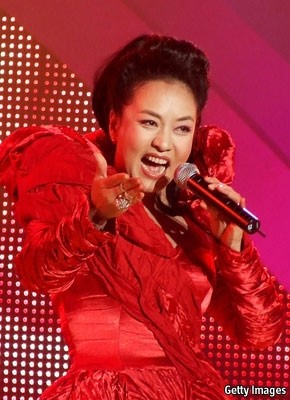
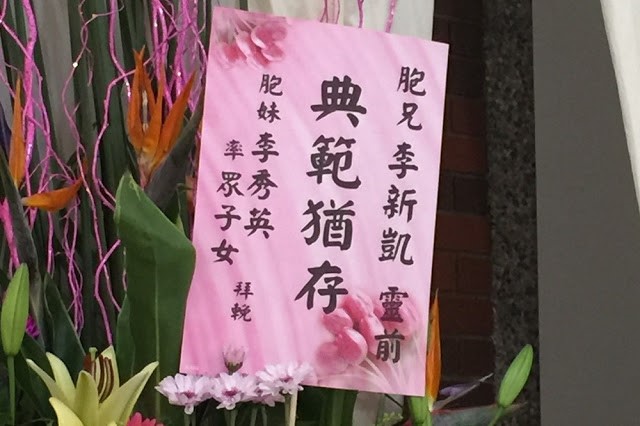
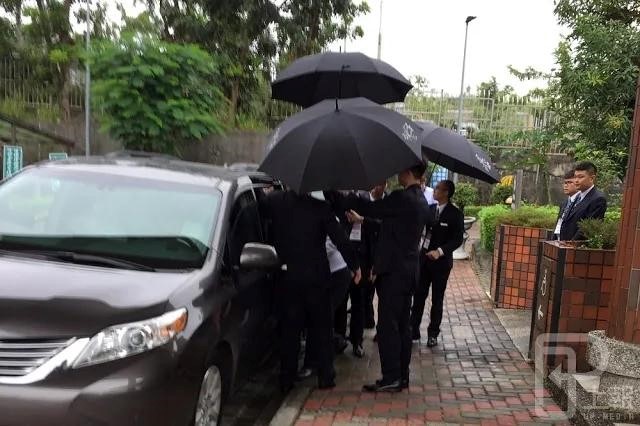
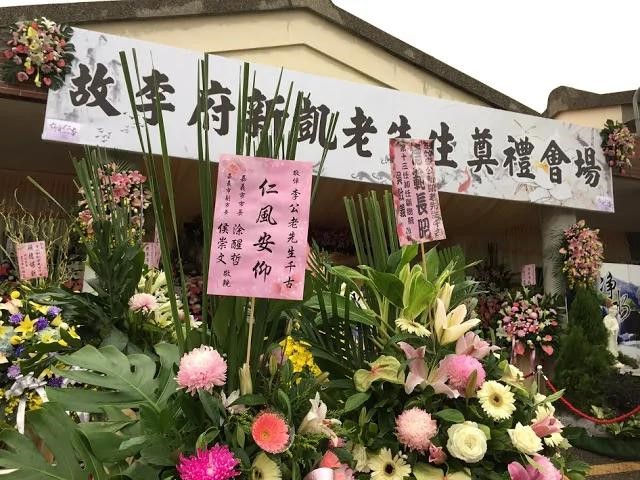
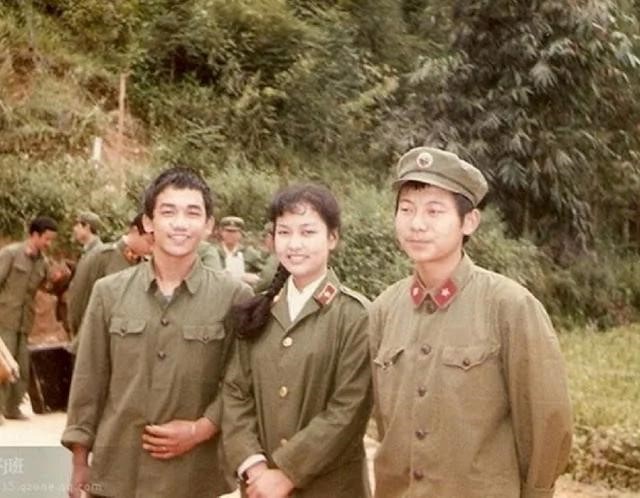
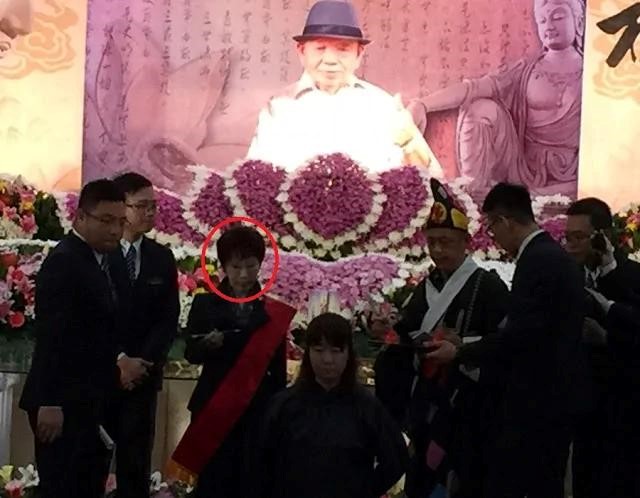
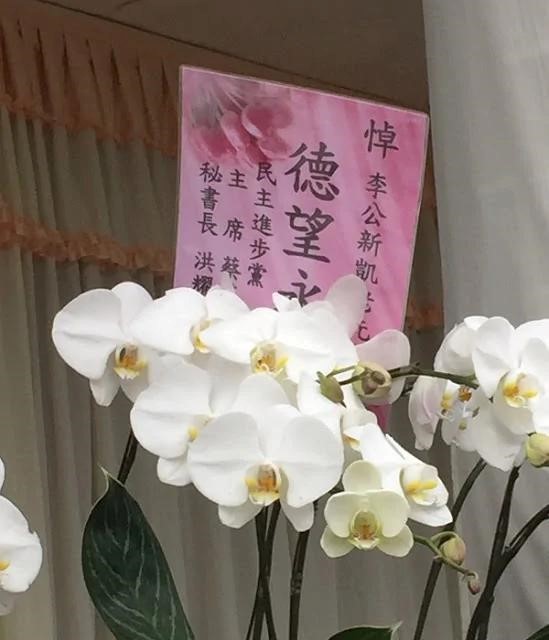
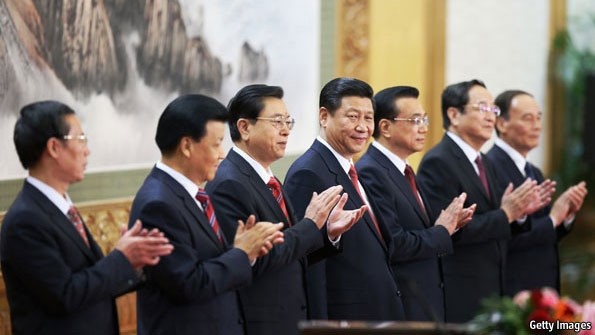 8
8